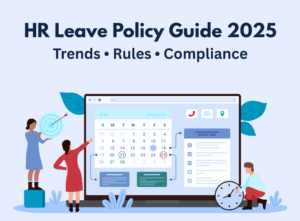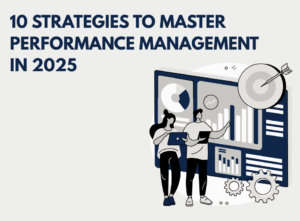“Human resources isn’t a thing we do. It’s what runs our business.” – Steve Wynn
Humans are complex creatures with every human being distinctly different from the other. The complexity grows multifold in a workplace where people from different beliefs and ideas work towards a common goal. Understanding these complexities and paving a path for people to work together is the role of an HR team. And, one of the biggest HR challenges in any organization.
Human resources has continually evolved ever since its inception in the late 19th and early 20th century. The responsibilities of human resources have also changed over time. Today, HR focuses on helping an organization reach its goals by maximizing its most competitive advantage – its employees.
Today, an HR team needs to focus on managing individuals and creating an environment where every member is their most productive self. This is a difficult task for anyone, and although the rise of technology has aided in better time management and decision-making, it has presented new challenges. Here are the five biggest hurdles an HR team in any organization needs to overcome.
-
Hiring the right talent
For any company, its employees are its distinct competitive advantage for the simple fact of the uniqueness of each individual. When the right talent is hired, your new employee’s integration into your team is a seamless process because they are already motivated and believe in your organization’s vision.
However, it’s a tough task to find the right talent who isn’t just qualified but, is also a good fit for your organization. And, it’s your HR team who is responsible to facilitate that.
Your HR team needs to draft a job description, publish it on available portals, scan through numerous application, schedule interviews, and be involved at every step, is bound to be a time-consuming and tiresome task.
Equipping your HR team with an application-tracking system (ATS) or a recruitment management software can ease the hassle of publishing on multiple platforms. Also, with many recruitment management powered by AI, such software can help analyze the application and simplify the shortlisting process.
-
Maintaining work culture
Nearly 50% of India’s workforce is battling stress-related health issues, and according to a study carried out Willis Towers Watson, 80% of organizations have taken some steps in tackling this issue.
It’s the responsibility of your HR team to maintain a positive work culture, this is achieved by understanding employee grievances, resolving conflicts between team members, and navigating through the differences among individuals in a diverse environment.
One sure way to know if your HR team’s efforts are having a positive impact is by carrying out regular employee feedbacks to understand how they see the culture and their feelings towards it.
Another way to ensure your work culture is positive, and employee stress level low is by starting an employee wellness program – for your employees can fall back on in case of increasing stress levels.
-
Deciding employee benefits
Now that employee wellness has been mentioned, it’s important to focus on employee benefits as it is necessary for increasing employee morale and keeping them engaged. And, it’s one of the most vital tasks for an HR team.
Given the diversity in the workplace, it would be a fool’s mistake to assume that every employee would want the same thing or finds the same thing to be just as beneficial as their peer. Navigating through these multitudes of requirements and deciding on benefits where every employee feels included is critical for an HR team.
Moreover, deciding on employee benefits is never a one-off activity. In time, your employees change, their needs and priorities also change. Therefore, it is necessary for your HR team to regularly evaluate the benefits provided, remove those that are no longer needed and add those which will increase employee satisfaction.
-
Maximizing employee performance and productivity
No-one would enjoy working 40+ hours a week, only to grow at a snail’s pace. That isn’t just going to lead to lower productivity but also make your most ambitious employee leave in a heartbeat.
This is where the role of your HR team is the most critical. To understand individual employees, set goals that help them advance in their career and overcome personal obstacles. Moreover, constant analysis of an employee’s performance with timely feedback can help them understand what is expected and work accordingly.
Using a performance management system to aide your HR team to define your employee’s goals, track their performance, and use available data to make better analytical decisions, can prove to be really helpful in streamlining their work.
-
Compliance with statutory guidelines
There is a plethora of rules and regulations that every business needs to comply with for it to function smoothly. And, these rules are regularly changing. It would be impossible for a CEO to make sure all these regulations are met, this is where an HR team is helpful.
An HR team is tasked with the responsibility to ensure a company complies with all statutory guidelines, and minimize the risk of facing legal consequences. In worse cases, it could also lead to the shutdown of your business.
These regulations focus on how an organization should be structured, mandatory leaves an organization must provide, and how salaries are assigned to employees. Enabling your HR team with a powerful payroll system can ease the burden of compliances when running monthly payroll, as most HRMS & Payroll software are compliant with all necessary statutory guidelines.
These are just a few most common challenges faced by every HR team. It’s important to be aware of the difficulties your HR team might face and how to proactively solve them.


